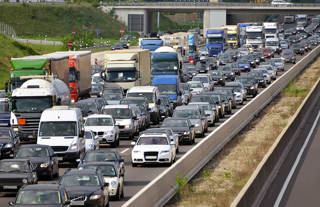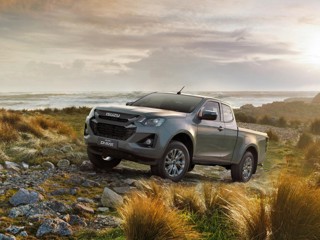The Government has performed a U-turn on introducing tax changes that would have seen drivers of unmarked emergency response vehicles being charged company car tax for journeys made while ‘on-call’.
HMRC was criticised by the Police Federation and the National Police Chief Council (NPCC) after changes from its Finance Bill 2017 meant some emergency response vehicle drivers were liable for benefit-in-kind (BIK) tax based on the vehicle’s P11D value, the number of days the vehicle is available for their private use and an environmental levy.
The officer’s salary also determined whether they were in the basic 20%, higher 40% or additional 45% banding.
This had meant tax payment increases potentially amounting to thousands of pounds due to the fact most undercover officers use high-performance, unmarked response vehicles that have high P11D prices and high emissions.
For example, a BMW 3 Series 2.0i 184 Sport has emissions of 134g/km and a P11D value of £30,140. For a 40% taxpayer this would mean a total BIK bill of £3,255 a year or £271.25 a month. A BMW M3 would cost £8,677 in tax a year or £723 a month for a 40% taxpayer.
Emergency police vehicles are often driven home to increase response times, rather than officers having to get to a depot.
After feedback from the Police Federation and the NPCC, HMRC has now extended the scope of the current BIK exemption for emergency vehicles to cover all commuting journeys.
It is also introducing a transitional period between April 6 last year until April 5, 2020, when the rules will be revisited.
The HMRC will also allow the cost of fuel to be excluded from the calculation of additional expenses when an employer has not provided any fuel for private use; the cost of fuel for any private mileage has been made good in full; or any reimbursement by the employer is only for fuel used for business mileage. HMRC also confirmed that any tax payments made in error can be reported and claimed back.
An HMRC spokesperson: “We updated the guidance in response to suggestions from the emergency services sector. Where benefits have been payrolled during 2017-18, employers are able to report errors and the effect of the new rules should have been adjusted.”
Andy Fittes, Police Federation of England and Wales general secretary, welcomed the changes and the fact HMRC and the Government had listened to concerns from the sector.
He said: “While it only involved a small number of federated officers, this was an unfair tax which could ultimately have affected their ability to carry out vital work in keeping the public safe.
“Police officers should not be penalised for effectively just doing their job and any officers who were adversely affected when the new rules came in in April 2017, can now claim the money back from HMRC.”
The HMRC spokesman added: “Ordinary commuting is typically considered a private expense. Extending the ‘on-call’ exemption to allow for ordinary commuting in an emergency vehicle is designed to aid the provision of vital public services.
“This recognises that the emergency services require flexibility to maintain fast response times, and ensures that a tax charge will not discourage employees from taking vehicles home.”





















Rosco7010 - 06/08/2018 15:57
Ok, so how will the HMRC know if the shiny new Audi RS6 is being used by an undercover police officer, or by the Chief Constable as a jolly? They will be told its undercover and exempt. A bit like the red Audi R8 with a Starsky and Hutch style magnetic blue light, that a Fire Chief was rolling around in a few years back. Lots of people have to have cars as part of their job, including call outs and emergency cover. But they have to pay company car tax. I am sad the HMRC have back tracked on this. The solution is for the police to simply gross up the pay of the undercover officer to compensate. I don't want police officers to be out of pocket any more than the average engineer who has to take his/her car home because the company doesn't have overnight parking, or could get an out of hours emergency. Now undercover police cars will have no relevance to efficiency, pollution. Because no one pays the benefit. I imagine police vehicle buyers will be getting their orders in for BMW M5's, Audi RS6, Golf R, X5's etc, because they come with large discounts, and no BiK to pay. Meanwhile company car drivers continue to be hammered with huge increases in tax. It feels like the average company car user is being cheated!